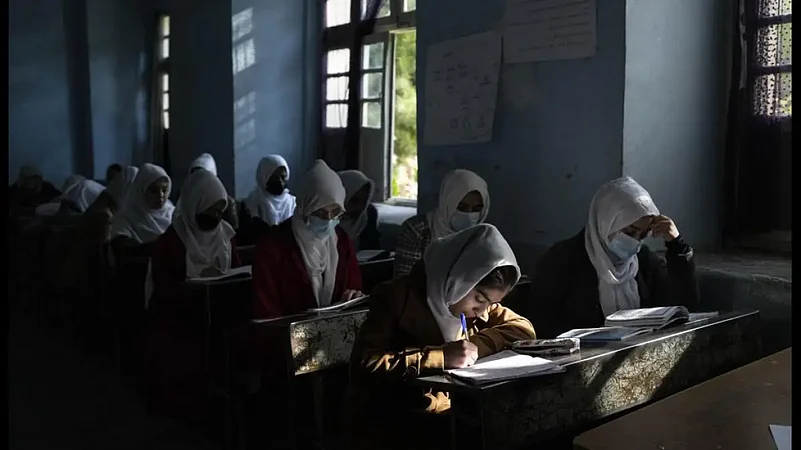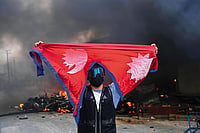Proving several critics of the hardliner 'government' right, Afghanistan’s Taliban rulers have backed out of their promises of providing education to women. On Wednesday, the Taliban unexpectedly decided against reopening schools to girls above the sixth grade, reneging on a promise and opting to appease their hard-line base at the expense of further alienating the international community.
The reversal was so sudden that the Education Ministry was caught off guard. It was the start of the school year, as schools in parts of the Afghan capital of Kabul and elsewhere in the country were opening. Some girls in higher grades returned to school, only to be told to go home.
The surprising decision, confirmed by a Taliban official, is bound to disrupt efforts by the Taliban to win recognition from potential international donors at a time when the country is mired in a worsening humanitarian crisis. The international community has urged Taliban leaders to reopen schools and give women their right to public space.
What happened previously?
Ever since the Taliban took over power in Afghanistan, the plight of women’s education has been a concern for human rights groups all across the world. However, last year, the group’s newly formed all-male interim government allowed female students to attend private universities but with harsh restrictions. Viral images showed several private universities conducting classes as students sat in classrooms with curtains separating the male from female students.
In a previous statement, the higher education minister Abdul Baqi Haqqani had said, “Co-education is in conflict with the principles of Islam and, on the other hand, it is in conflict with national values and is against the customs and traditions of Afghans.”
The group, however, had promised to protect women’s rights and press freedom in its first news conference following its takeover of Afghanistan last year.
“We are going to allow women to work and study. We have got frameworks, of course. Women are going to be very active in the society but within the framework of Islam,” Zabihullah Mujahid, the group’s spokesman, had said at a news conference on August 16, 2021.
Virtual female lectures were allowed only for females, while co-education in Herat province was banned. During the Taliban’s previous rule from 1996 to 2001, education was again banned in Afghanistan with tyranny against women increasing in the fold.
How are Afghan women reacting to the rule?
More than two dozen women staged a protest in front of the Ministry of Education following the Taliban’s decision to shut secondary schools for girls.
According to various media reports, female students gathered books during the protest and chanted “Open the schools! Justice, justice!”
What are the foreign bodies saying?
U.S. Special Representative Thomas West tweeted his “shock and deep disappointment” about the decision, calling it “a betrayal of public commitments to the Afghan people and the international community.”
He said the Taliban had made it clear that all Afghans have a right to education, adding, “For the sake of the country’s future and its relations with the international community, I would urge the Taliban to live up to their commitments to their people.”
Aid organizations said the move exacerbated the uncertainty surrounding Afghanistan’s future as the Taliban leadership seems to struggle to get on the same page as it shifts from fighting to governing.
According to an analysis by the Guardian, the US was poised to set up diplomatic ties with the Taliban before the plan was derailed by the Afghan rulers’ sudden decision to stall their own promise on women’s education. Western leaders have clarified that diplomatic ties with the country would not be possible unless the Taliban clear their stance on women’s education.
(with inputs from AP)





















